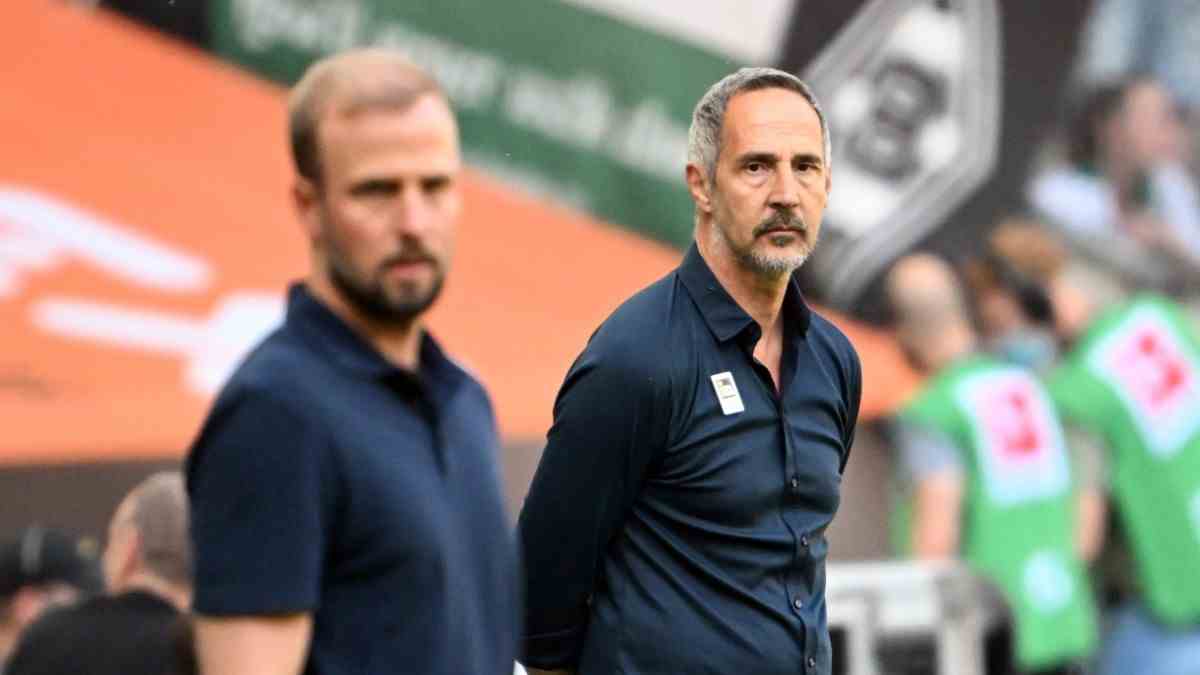Hütter gone, Kohfeldt gone, Weinzierl gone: The league is experiencing an unusual wave of divorces in the coaching posts. But that does not testify to the brutality of the industry – but to the new self-image.
“If the leaves fall in autumn, the coaches’ chairs will shake in football,” is an old rule of the Bundesliga that has been tried and tested for decades, but its truthfulness is now in question – climate change is also having an impact on the traditional circumstances here.
Last autumn was a relatively quiet time for the head coaches of the first division. Pal Dardai was hit in Berlin at the end of November, Jesse Marsch in Leipzig at the beginning of December, and that was it. It is only now that the trees are full of green again that a wave of divorces arrives with the final whistle of the season: Wolfsburg parted ways with Florian Kohfeldt, Mönchengladbach with Adi Hütter, and Markus Weinzierl preferred to let himself go in Augsburg before the club could do it. It is said that it is also not certain whether Sebastian Hoeneß will survive the season analysis in Hoffenheim.
Still, it doesn’t take the intervention of environmentalists to get the endangered species of football teachers through the hot season. Instead, there is probably reason for the vernacular to formulate a new wisdom. Something like this: “When the roses bloom at Pentecost, the clubs change coaches like pants.” The poetry could undoubtedly still be worked on. But the phenomenon could thus be roughly described.
Dealing with the coaches is becoming more and more similar to that with the players
However, the fact that the coaches mentioned are now retiring from their jobs does not express any new form of brutality in the industry. It has to do with the new self-image with which they move through the country. This became apparent for the first time last summer, when there was an unprecedented change of coaches in the premier league with the use of contract clauses, transfer fees and all sorts of broken promises: Wolfsburg, Mönchengladbach, Dortmund and Frankfurt exchanged almost all of their rings; RB Leipzig transferred Julian Nagelsmann to FC Bayern for the highest price.
While it used to be said that the trainers were underpaid and underprivileged as managers compared to the footballers, a development was emerging that corresponded to the important position of the trainers in the market: advising agents, they operated their own job change.
The weekend’s breakup cases indicate the next level of alignment to the player level. The interchangeability is recognized by both sides and handled professionally. With the effect that another prop from the past is back in fashion: the trainer carousel is popular again.

